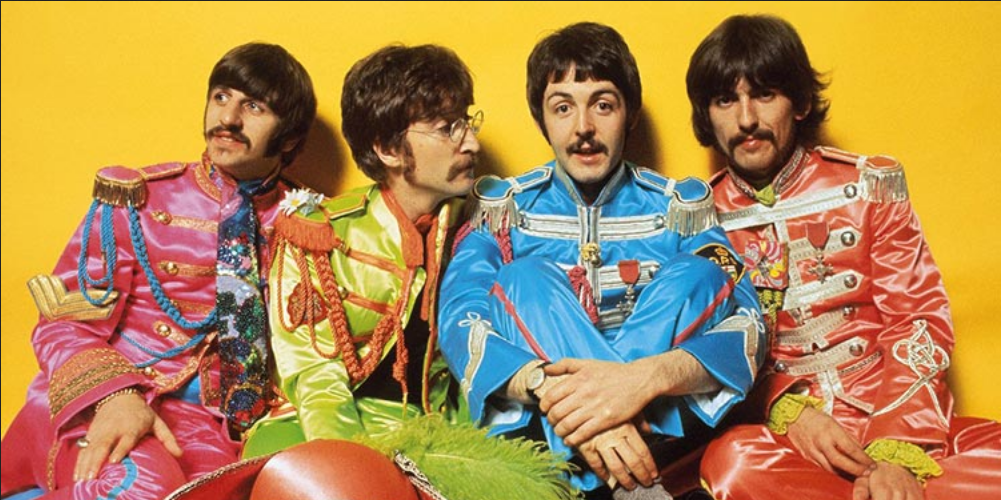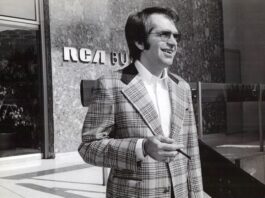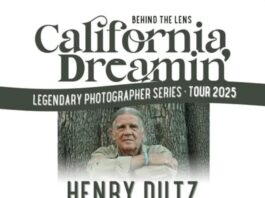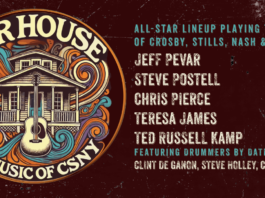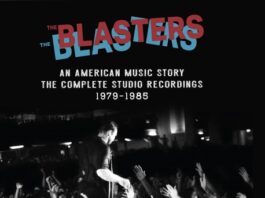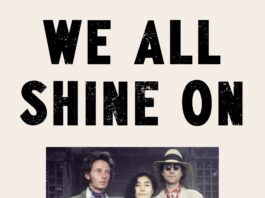This is not a review of The Beatles’ “Sgt. Pepper’s Lonely Hearts Club Band” 50th-anniversary package, out May 25, a week shy of 50 years after its first release on June 1, 1967.
You can check out the features and reviews by Mikal Gilmore, Chris Morris and Chris Willman for all the deets about the original sessions, the 2017 remix by Giles Martin (whose dad famously produced the original), and the lavish package, unboxed below:
Instead, this is a flashback to my semi-idyllic virgin experience hearing the album on its release day, with the ears of a 15 1/2-year-old high school kid.
For context, I’d been a Beatles fan since December 1963, when as a 12-year-old 7th-grade dweeb and budding drummer I heard “I Want to Hold Your Hand” on the radio in Miami, where I was partly raised.
My younger sister Ruth and I saw the band’s “Ed Sullivan” debut and transformed into hardcore Beatlemaniacs in front of our parents’ eyes in the space of that hour on Sunday night, February 9, 1964.
RELATED: Beatles Ed Sullivan Debut Rocked Sis and Me
Like most of my peers, I followed John Lennon, Paul McCartney, George Harrison and Ringo Starr through their every musical progression – the early years through the “Help!” era and into “Rubber Soul” and “Revolver.” As we grew, so did they.
As a young drummer taking private jazz lessons and teaching myself to play rock ‘n’ roll, I knew Ringo wasn’t technically the best potsman on the planet, but he sure was the right drummer for that band and those songs. His inventiveness, doing something different on just about every track, was a huge part of my rock drumming education.
 (Years later, as writer/producer of “The Lost Lennon Tapes” radio series and listening to dozens of Beatles early takes and outtakes, I was not surprised that Ringo was hardly EVER responsible for a take breaking down. It was the other three who always screwed up. But that’s another post.)
(Years later, as writer/producer of “The Lost Lennon Tapes” radio series and listening to dozens of Beatles early takes and outtakes, I was not surprised that Ringo was hardly EVER responsible for a take breaking down. It was the other three who always screwed up. But that’s another post.)
RELATED: Beatles on Sullivan Changed My Life for 50 Years
My best friends, like Steve Heidt, Jeff Thaw, Bill Walls, Joe McGee, David “Big Al” Leighton, Charlie Mallicote, Steve Pitts, Gordon McLeod and Tom Kounelis among them, dug The Beatles, too, though to this day McGee insists The Rolling Stones were the better band. I was a major Stones fan, too; it was always a subjective “apples and oranges” convo.
But in ’64, ’65 and ’66, most of us North Miami High School kids were into Beatles, Stones, Beach Boys and Byrds, girls, and surfing, not always in that order, with beer added to the mix in ’66. Joe and I were the only musicians – okay, drummers; we both took lessons from the same cat, Sonny Mangiamelli aka Sonny Mange.
 But in the case of “Sgt. Pepper,” our artist friend Ed Dezago, Pitts’ best friend, was the first of us to buy it.
But in the case of “Sgt. Pepper,” our artist friend Ed Dezago, Pitts’ best friend, was the first of us to buy it.
Dezago brought the album over to my house after school because I had a better record player, an early-’60s-vintage Motorola portable stereo my dad gave me when he got a better one.
Ed and I knew, or sensed, or hoped, this record would be monumental. First, it was The Beatles. Their last album, “Revolver,” was all killer, no filler.
But after all the “better than Jesus” furor in the States in summer ’66, they quit the road in August and took a break. There was some hoo-hah in the press that fall about the band breaking up, that the Fabs were over as the world’s greatest pop group.
Then “Penny Lane” and “Strawberry Fields Forever” fell out of the sky, one side a cheery bit of neo-nostalgia and the other a little musical acid trip (although we didn’t know they’d dropped LSD in early ’65, until Paul famously outed himself soon after “Sgt. Pepper” was released).
“Penny Lane” and especially “Strawberry Fields” proved The Beatles were still very much on the bleeding edge. So our anticipation for “Sgt. Pepper” was intense.
On the way home, Ed and I made a detour to a small liquor store several blocks away, where we could always get somebody to buy us beer, and got a few cans of Colt .45 malt liquor.
Wow, really? Yeah.
Hurl-acious as that may sound, understand that weed was still very much underground in Miami even in June 1967. Kids in high school still drank beer at parties and local dances, and especially malt liquor, because it was cheap and took less to get drunk. When you’re 15, lest you forget, two of the many things you don’t have are money and patience.
So Dezago and I chugged our Colts on the walk home, ditched the cans, and weaved into my house, straightening up enough to get past my sister and into the safety of my room. I locked my door, put the album on the turntable, and we listened to “Sgt. Pepper’s Lonely Hearts Club Band” for the first time. Under the influence of alcohol.
RELATED: Beatles 2016 – 50-Year Flashback to Beatles 1966
We were not disappointed by what we think we heard.
Being a graphic artist and a huge Bob Dylan fanatic, Dezago was probably the hippest among our clan. His comment was, “This is ART, it’s not just rock ‘n’ roll!”
Ed’s “Sgt. Pepper” was a mono pressing. I gave him a hard time about that. Stereo was new, happening, I said. Mono was old, lame. I wanted to hear it in stereo. He said the mono version was 50 cents cheaper. Okay, fair enough. Couldn’t argue with that. What the f**k did we know?
 I recall flipping out about the package; I wanted to cut out the pieces but Ed wouldn’t let me.
I recall flipping out about the package; I wanted to cut out the pieces but Ed wouldn’t let me.
“Get your own!” he said.
I don’t recall much else about that first listen, other than it is just about impossible to find the message of cosmic one-ness in “Within You Without You” when snockered on cheap beer.
We even tried changing the speed from 33rpm to 45 and 78, but that just made us laugh our asses off. Gasp.
Following Ed’s advice, within a few days I had my own copy of “Sgt. Pepper,” in stereo, and listened to it without quaffing brews first. As I listened, I cut up the insert pieces and pasted them on my wall (see pic below).
What I recall most about that second playback are these three things. First, how the album and concept and story took me somewhere else for the duration, as no other album had before. Listening to the songs, reading the lyrics, ID-ing the people on the cover, absorbing the ideas, marveling at the sounds, instrumentation and effects – it was just as splendid a time as guaranteed.
RELATED: “Lucy In the Sky With Diamonds” Take 1 (audio)
Second, I remember “She’s Leaving Home” brought me to tears. “Here, There and Everywhere” did, too, but in an entirely different, soft and fuzzy romantic way.
This is where kids listening to “Sgt. Pepper” today may miss the context. At the time, there was a huge disconnect between parents and their teenaged kids – search “generation gap” – and underage kids were running away from home in unprecedented  numbers.
numbers.
In the States, the West Coast was a magnet for young people who didn’t want to grow up to be their parents.
When “Sgt. Pepper” arrived, Scott McKenzie’s “San Francisco” was all over still-dominant Top 40 radio, romanticizing the hippie scene there and inviting every kid on the planet to go.
“There’s a whole new generation/with a new explanation…”
(The Monterey Pop Festival was also imminent; The Beatles couldn’t make it but sent an illustration.)
“She’s Leaving Home” is the heartbreaking story of a runaway, and a surprisingly deep social statement for a pop song then, even coming from The Beatles.
The third thing? As with every Beatles single and album before, I cued up “Sgt. Pepper,” cranked up the volume on my stereo (didn’t have headphones yet), and played along with Ringo on my drums until I knew every drum part by heart. (That’s me a year later, June ’68. Pepper cutouts pasted onto Beatles pic above green chair.)
Except “Within You Without You.” Gimme a break.
Of course, listening to “Sgt. Pepper” a few months later, after my initial partaking of the herb, was another heady experience. Then, in fall 1968, listening to the album during my first psychedelic trip, I heard it for the first time. Everything that seemed weird suddenly made sense, and the stuff that made sense sounded weird. Still not easy to articulate verbally.
RELATED: Lewisohn Beatles Bio ‘Tune In’ Paperback Out October 2016
Among that core group of friends, Jeff Thaw is probably as much of a Beatlemaniac as I. He recently recalled that an early version of “A Day in the Life” got played on the radio in Miami, on either WQAM or WFUN, the competing Top 40 stations, during the spring of ’67.
 “Some DJ (can’t recall which one) got hold of an acetate and played it a few times,” Jeff said. “I was knocked out by it! Then suddenly, the recording was pulled back, and we heard nothing more until the album was released.”
“Some DJ (can’t recall which one) got hold of an acetate and played it a few times,” Jeff said. “I was knocked out by it! Then suddenly, the recording was pulled back, and we heard nothing more until the album was released.”
Now, I don’t remember that at all, but I know JT would not make up such a story.
And what did he think of the released album?
“I was blown away! As a Beatles fan from the very beginning I was always eagerly anticipating their next release…which was fairly frequent by today’s standards,” Jeff said. “Their preceding works, ‘Rubber Soul’ and ‘Revolver’ were masterpieces, and it was clear the trajectory of their creativity was going to produce something groundbreaking.
“And of course, we weren’t disappointed,” he added. “‘Sgt. Pepper’ contained new sounds and arrangements that were only hinted at in The Beatles’ earlier work. It was nothing less than an explosion of musicianship, lyric writing and sophisticated musical ideas that rocketed the band to mega-musician status.”
What JT said.
Santa Clarita journalist Stephen K. Peeples was the original, award-winning producer of “The Lost Lennon Tapes” radio series for Westwood One from 1988-1990. Peeples is also a Grammy-nominated record producer and award-winning radio producer. He was the award-winning Online Editor for The Signal from 2007-2011, and hosted-co-produced SCVTV’s WAVE-nominated “House Blend” local music show from 2010-2015. Peeples is now VP/New Media Emeritus for Rare Cool Stuff Unltd. and CEO of PetMeHappy.com. For more stories and info, visit https://stephenkpeeples.com/. For exclusive behind-the-scenes interviews, subscribe to his YouTube channel.
Article: Sgt. Pepper Spiced My Summer of Love 50 Years Ago
Author: Stephen K. Peeples
Category: News & Reviews
Article Source: StephenKPeeples.com

